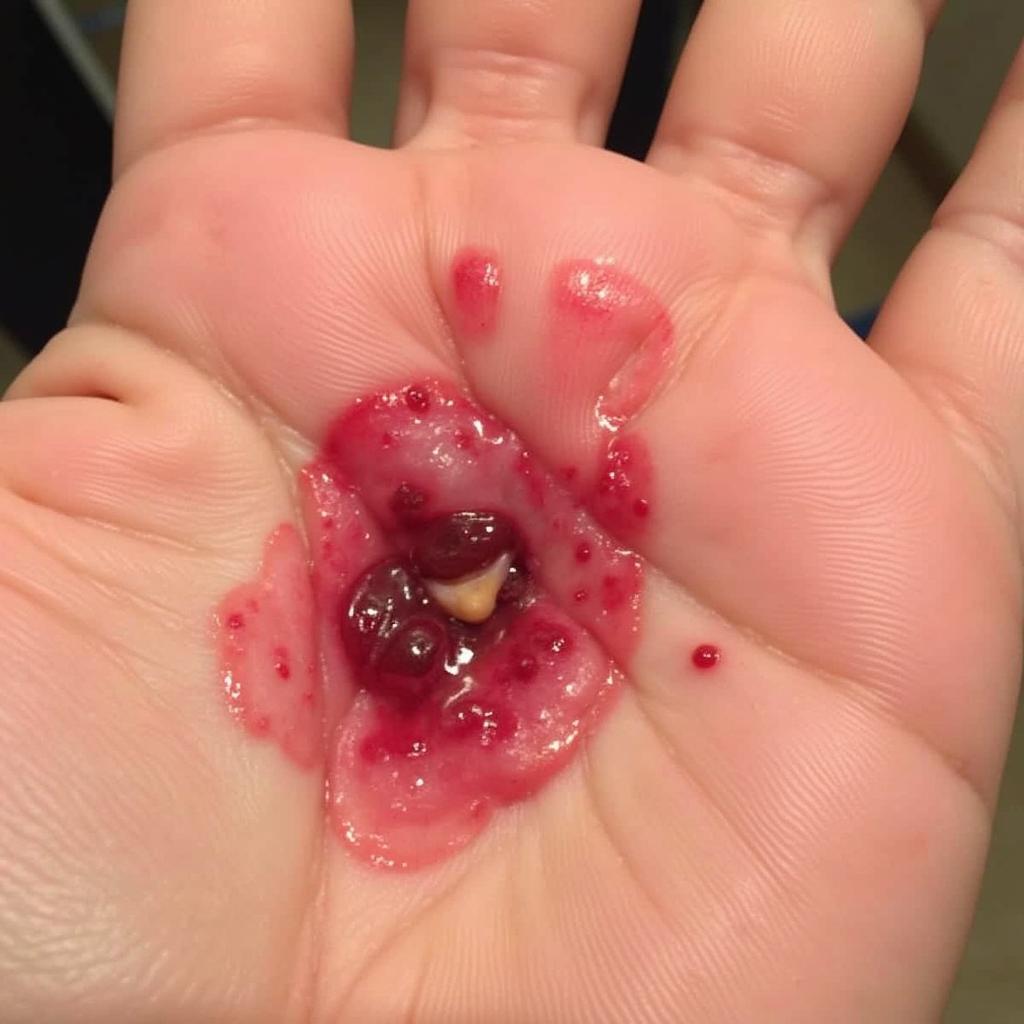African Grey Parrot Bite Infection: What You Need to Know
An African Grey Parrot Bite Infection is a serious concern for anyone interacting with these intelligent birds. While African greys are known for their ability to mimic human speech and their affectionate nature, their powerful beaks can cause significant injury, potentially leading to infection if not properly addressed. This article provides comprehensive information on how to prevent, identify, and treat infections resulting from an African grey parrot bite.
Understanding the risks associated with parrot bites is crucial for both owners and anyone who comes into contact with these birds. While rare, infections from parrot bites can range from mild skin irritations to more serious conditions. It’s important to take any bite seriously and seek appropriate medical attention when necessary. For those interested in African bird breeder India, understanding these health risks is especially important.
Recognizing the Signs of an African Grey Parrot Bite Infection
Identifying an infected parrot bite early is crucial for effective treatment. Look for signs of inflammation, such as redness, swelling, and increasing pain around the wound. Pus or a cloudy discharge from the bite area is another clear indication of infection. If you experience fever, chills, or swollen lymph nodes, seek immediate medical attention, as these could be signs of a more serious systemic infection. Don’t take any chances, especially if you are aware of the potential for african grey diseases to humans.
If the bite wound is deep, seek medical attention immediately, even if you don’t see immediate signs of infection. A deep wound carries a higher risk of infection and may require professional cleaning and possibly stitches. Prompt treatment can prevent complications and promote faster healing.
 African Grey Parrot Bite Infection Symptoms
African Grey Parrot Bite Infection Symptoms
Preventing Infection from an African Grey Parrot Bites
Prevention is the best approach when it comes to parrot bites and subsequent infections. Understanding your bird’s behavior and triggers can significantly reduce the likelihood of being bitten. Avoid approaching your parrot when it displays signs of aggression, such as ruffled feathers, pinning eyes, or hissing. Respect your parrot’s space and avoid handling it when it appears stressed or agitated. You can find more information about these magnificent birds at blue african grey parrot.
Proper hand hygiene is essential. Always wash your hands thoroughly with soap and water before and after handling your parrot, its cage, or any toys. This helps to prevent the spread of bacteria and reduce the risk of infection in case of a bite.
Treatment Options for an African Grey Parrot Bite Infection
If you suspect an infection, the first step is to thoroughly clean the wound with mild soap and warm water. Apply a topical antiseptic and cover the bite with a clean bandage. Closely monitor the wound for any signs of worsening infection.
For mild infections, these measures may be sufficient. However, if the infection persists or worsens, consult a doctor immediately. They may prescribe oral or topical antibiotics to combat the infection effectively. In some cases, a tetanus booster shot might be recommended, especially if your last booster was more than five years ago. Ensuring your bird has a healthy diet, such as with african cinnamon pineapple bird foods, can also help maintain their overall health and potentially reduce the risk of transmitting certain bacteria.
When to Seek Immediate Medical Attention
Certain symptoms warrant immediate medical attention. These include a high fever, spreading redness or swelling, red streaks extending from the bite, increased pain, and swollen lymph nodes. These signs could indicate a more serious infection requiring prompt medical intervention.
Conclusion
While African grey parrots are beloved companions, it’s crucial to be aware of the potential risks associated with their bites. Understanding how to prevent, identify, and treat an African grey parrot bite infection can help ensure both your well-being and that of your feathered friend. Don’t hesitate to seek professional medical advice if you have any concerns about a parrot bite. Remember, a proactive approach is key to preventing complications and promoting a healthy relationship with your African grey parrot.
FAQ
-
What is the most common bacteria found in parrot bites?
- Pasteurella species are the most frequently identified bacteria.
-
Can a parrot bite cause tetanus?
- Yes, although rare, parrot bites can introduce bacteria that cause tetanus.
-
How long does it take for a parrot bite infection to heal?
- Healing time varies, but with proper care, most infections resolve within a week or two.
-
Should I be worried about scarring from a parrot bite?
- Deep bites can potentially leave scars, but prompt treatment can minimize scarring.
-
Are antibiotics always necessary for a parrot bite infection?
- Mild infections may not require antibiotics, but a doctor should evaluate any bite that shows signs of infection.
-
Can I treat a parrot bite infection at home?
- Initial cleaning and topical antiseptic application can be done at home, but medical advice is essential for any suspected infection.
-
How can I prevent my parrot from biting?
- Understanding your parrot’s behavior, avoiding stressful situations, and proper handling techniques can reduce biting incidents.
Do you have other questions about African Grey Parrots? You might find more information on our page about African grey diseases to humans.
If you need any assistance, please don’t hesitate to contact us. Call us 24/7 at +255768904061, email us at kaka.mag@gmail.com, or visit our office in Mbarali DC Mawindi, Kangaga, Tanzania.
